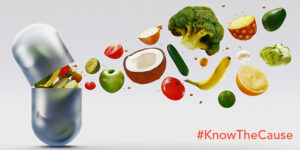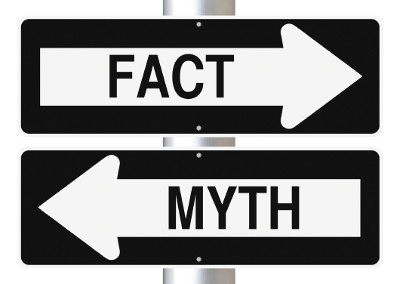

|
Otherwise, our trust is being placed in the hands of those trying to sell us something, which seems like it could represent a conflict of interest.
This is especially important as it relates to the foods we buy on a weekly basis. Foods are constantly marketed to us through various avenues. Television, print, social media, even the labeling of foods all representative the control marketing, branding and advertising forces have upon the food economy.
But how much can we trust what we are being told about what is in our food? There is a good deal of confusion when it comes to foods we buy, because the language marketers use to sell us those foods can be slippery.
To give an example, there are two labels often found on food product labels. These are the labels, organic and natural. Both are representative of selling points food purveyors promote to sell foods. These two labels have a seemingly similar connotation, being that of a food that is void of anything “unnatural” or toxic, and subsequently, healthier fare to eat.
However, there are some important distinctions between these two labels.
If something is labeled organic, it must comply to a certain set of standards set by the USDA. From the USDA site, “Organic is a labeling term that indicates that the food or other agricultural product has been produced through approved methods that integrate cultural, biological, and mechanical practices that foster cycling of resources, promote ecological balance, and conserve biodiversity. Synthetic fertilizers, sewage sludge, irradiation, and genetic engineering may not be used.” This is a strictly guarded label, and one you can typically trust.
At KTC, we often recommend buying organic foods that conform to the Kaufmann 1 Diet, because some of the compounds used in non-organic farming are thought to pose some health risks. However, organic foods are typically more expensive than non-organic foods. So we always say that if you can afford it, “going organic” is a good, albeit not totally necessary, choice while on Kaufmann 1.
Labeling a food as natural, however, is quite different. From the USDA’s site, “… the natural label does not include any standards regarding farm practices and only applies to processing of meat and egg products. There are no standards or regulations for the labeling of natural food products if they do not contain meat or eggs.”
So, food can be labeled as “natural”, but there are no regulations in place that hold a company to any sort of “natural” standard!
So here are two similar ways foods can be marketed to you, but both represent vastly different standards of quality. Many consumers will automatically equate “organic” with “natural”, or vice versa, and equate both with “healthy” food. It is important to understand the selling points of food purveyors, because the image you’re being sold isn’t always necessarily what you’re buying. {flike} Related Articles and videos
|
Doug Kaufmann has written many books that cover a full range or health issues. Find out which of his books best suits you by clicking the button below.
Doug Kaufmann developed his diet after years studying the clinical effects of pathogenic fungi on the body. Fungi and yeasts can become parasitic organisms on and inside our body, causing health problems that can be difficult to diagnose. Learn more about the Kaufmann Diet, change your life and know the cause.
We encourage all visitors to this site to take some time and study these technical articles prior to initiating lifestyle changes, including dietary changes and to do so with their physician’s awareness and approval. The articles posted in this link are scientific and with few exceptions are taken from medical journals familiar to healthcare workers.
Looking for help assembling antifungal Kaufmann Diet approved recipes for breakfast, lunch or dinner? We have several videos, books and recipe write ups here on Know the Cause that will help your health journey. The recipes in this section are so good, you’ll feel like you’re indulging. No sacrifice needed! Enjoy.
© 2024 Mediatriton Inc. All Rights Reserved • Website by Skynet Solutions